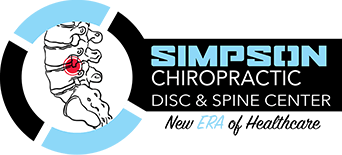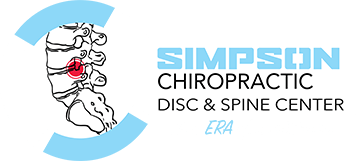NERVE PAIN TREATMENT
“Neuropathy,” or “peripheral neuropathy,” is a general term for symptoms caused by damage to nerves that branch out from the brain and spinal cord. The damage disrupts signals that your brain and spinal cord send and receive. That may mean the signal can’t get through, is sent in error or is distorted. Neuropathy may involve only a single nerve such as the median nerve to the hand, which can cause carpal tunnel syndrome, or several nerves simultaneously, which can affect multiple parts of your body.
If you have nerve damage, the pain may be mild to severe. It can also disrupt function and sensation. Some people take medications that may or may not reduce the pain, and there are surgical procedures available for some kinds of neuropathy. But medication and surgery can come with side effects and health risks. Chiropractic care, in contrast, takes a natural approach to treating neuropathy without drugs or surgery.
CAUSES OF NEUROPATHY
Neuropathy is a common ailment that occurs as the result of injury, disease, genetics or chronic health conditions, including:
- Diabetes, due to damage caused by high blood sugar (neuropathy occurs in 60 to 70% of diabetics)
- Trauma from accidents or injuries
- Deficiencies in vitamins such as the B vitamins and vitamin E, which are important for healthy nerve function
- Excessive alcohol consumption, which can strip the body of essential nutrients and lead to neuropathy
- Autoimmune diseases like rheumatoid arthritis or lupus
- Infections such as HIV or Lyme disease
- Medications, including some chemotherapy drugs
However, it is important to note that for many people with peripheral neuropathy, the cause is unknown. This is called “idiopathic neuropathy.”
SYMPTOMS OF NEUROPATHY
People generally describe nerve pain as stabbing, burning or tingling. You may notice a sudden or gradual increase in numbness, muscle weakness or sensitivity to touch. Balance and gait can also be affected.
Your particular symptoms will depend on the type of nerve damage you sustained. It may be sensory, which can be painful but may also mean you may lose feeling. If you lose sensation in your feet, for example, you may not notice wounds or burns. It’s important to examine parts of your body that have lost sensation on a regular basis.
Motor neuropathy disrupts the ability to control movement. Autonomic neuropathy affects everyday functions like blood pressure and bladder and bowel control.
- Diabetes, due to damage caused by high blood sugar (neuropathy occurs in 60 to 70% of diabetics)
- Trauma from accidents or injuries
- Deficiencies in vitamins such as the B vitamins and vitamin E, which are important for healthy nerve function
- Excessive alcohol consumption, which can strip the body of essential nutrients and lead to neuropathy
- Autoimmune diseases like rheumatoid arthritis or lupus
- Infections such as HIV or Lyme disease
- Medications, including some chemotherapy drugs
However, it is important to note that for many people with peripheral neuropathy, the cause is unknown. This is called “idiopathic neuropathy.”
People generally describe nerve pain as stabbing, burning or tingling. You may notice a sudden or gradual increase in numbness, muscle weakness or sensitivity to touch. Balance and gait can also be affected.
Your particular symptoms will depend on the type of nerve damage you sustained. It may be sensory, which can be painful but may also mean you may lose feeling. If you lose sensation in your feet, for example, you may not notice wounds or burns. It’s important to examine parts of your body that have lost sensation on a regular basis.
Motor neuropathy disrupts the ability to control movement. Autonomic neuropathy affects everyday functions like blood pressure and bladder and bowel control.
CHIROPRACTIC TREATMENT FOR NEUROPATHY
Chiropractors support early diagnosis and treatment of neuropathy to minimize permanent nerve damage. They can also recommend ways to improve your overall health, including conditions that may have led to your nerve pain.
Chiropractors look for the cause of the symptoms as well as ways to manage the pain from neuropathy. After a chiropractor establishes there is no underlying condition that needs medical care, they can design a treatment plan. Some approaches include:
- Adjustments, which can relieve pressure on pinched or compressed nerves, followed by stretching exercises which may increase nutrients to the area that help the nerve heal
- “Cold” laser therapy, which uses a device that does not generate heat. The laser penetrates the layers of the skin to the injured area. It can reduce pain and inflammation, stimulate muscles and promote healing.
- TENS (Transcutaneous electrical nerve stimulation), which sends a small electric current to the injured nerves. The current can block pain signals from being sent to the brain and may also stimulate circulation and healing.
- Nutritional and lifestyle recommendations
Neuropathic pain can be difficult to treat, and medication may or may not provide relief. Chiropractic care stresses maximizing the body’s own ability to heal, so if you think you may have symptoms of neuropathy, consider seeing a chiropractor. If your condition requires medical care, your chiropractor will recommend that you see an MD, but often chiropractic treatment can help reduce your symptoms and increase your function
-
“He is prompt, very knowledgeable, and kind. When explaining your reason for the visit, he quickly finds your problem and works it right out. I say Dr. Simpson is the best in our area!! ”
- Penny B. -
“Best chiropractor around! Staff are super friendly and overall inviting atmosphere. ”
- Heather S. -
“Great caring staff, easy to make appointments, and Dr. Simpson listens and takes care of any problem areas and concerns. ”
- Jayne H. -
“I have had nothing but a great experience at Simpson Chiropractic! I started as a new patient last fall and the staff is friendly, the service is awesome, and the difference I feel has been amazing. I would highly recommend them to anyone in need of chiropractic care! ”
- Karen T. -
“Everyone is friendly and knowledgeable and I feel so much better leaving after an adjustment! ”
- Traci M. -
“Dr. Simpson is wonderful, and so is his staff! The wait time is minimal, and I always leave feeling better than when I went in! Excellent care, definitely recommend! ”
- Katie H.

